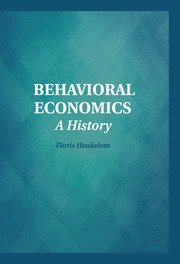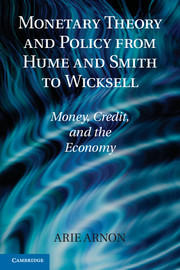Behavioral Economics
This book presents a history of behavioral economics. The recurring theme is that behavioral economics reflects and contributes to a fundamental reorientation of the epistemological foundations upon which economics had been based since the days of Smith, Ricardo, and Mill. With behavioral economics, the discipline has shifted from grounding its theories in generalized characterizations to building theories from behavioral assumptions directly amenable to empirical validation and refutation. The book proceeds chronologically and takes the reader from von Neumann and Morgenstern's axioms of rational behavior, through the incorporation of rational decision theory in psychology in the 1950s–1970s, and to the creation and rise of behavioral economics in the 1980s and 1990s at the Sloan and Russell Sage Foundations.
- The first history of behavioral economics on the market
- Offers a genuine and neutral understanding of the historical, philosophical, and societal contexts from which behavioral economics emerged
- Based on exclusive interviews with participants and draws on a number of previously unexplored archives
Reviews & endorsements
"This superb book gives the reader a unique and fascinating window into the historical and intellectual origins of behavioral economics, a movement that is rebuilding economics on a new, more realistic foundation."
George Loewenstein, Herbert A. Simon Professor of Economics and Psychology, Carnegie Mellon University
"The author provides a balanced treatment of diverging views with a light hand on interpretation … Summing up: highly recommended."
M. H. Lesser, Choice
‘Together, the two narratives make for a richer fabric that can undergird future debates and serve as a basis for much-needed further work on the history, philosophy, and methodology of behavioral economics.’ Erik Angner, Journal of the History of Economic Thought
Product details
February 2014Hardback
9781107039346
238 pages
231 × 155 × 18 mm
0.45kg
6 b/w illus. 1 table
Available
Table of Contents
- Introduction
- 1. Understanding human behavior
- 2. The incorporation of von Neumann and Morgenstern's behavioral axioms in economics and psychology
- 3. 'Measurement theory in psychology is behavior theory'
- 4. Kahneman and Tversky: heuristics, biases, and prospects for psychology and economics
- 5. Incorporating psychological experiments in economics and the construction of behavioral economics
- 6. Building and defining behavioral economics
- Epilogue.










